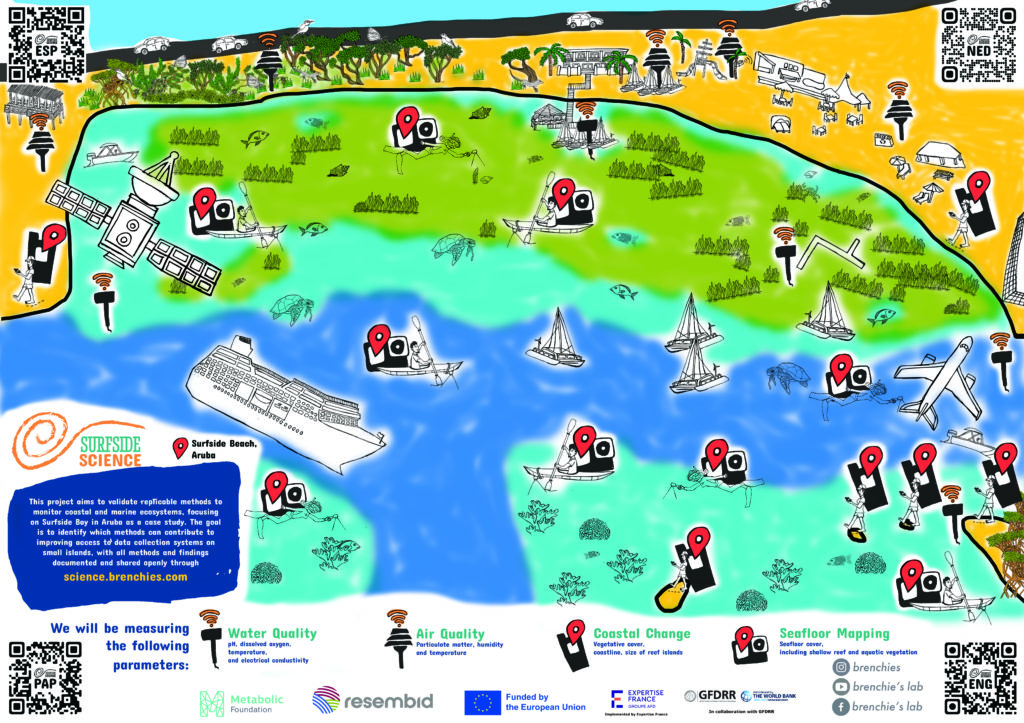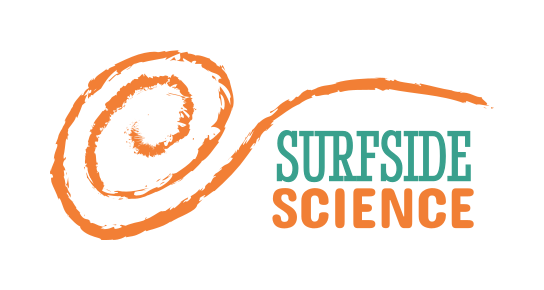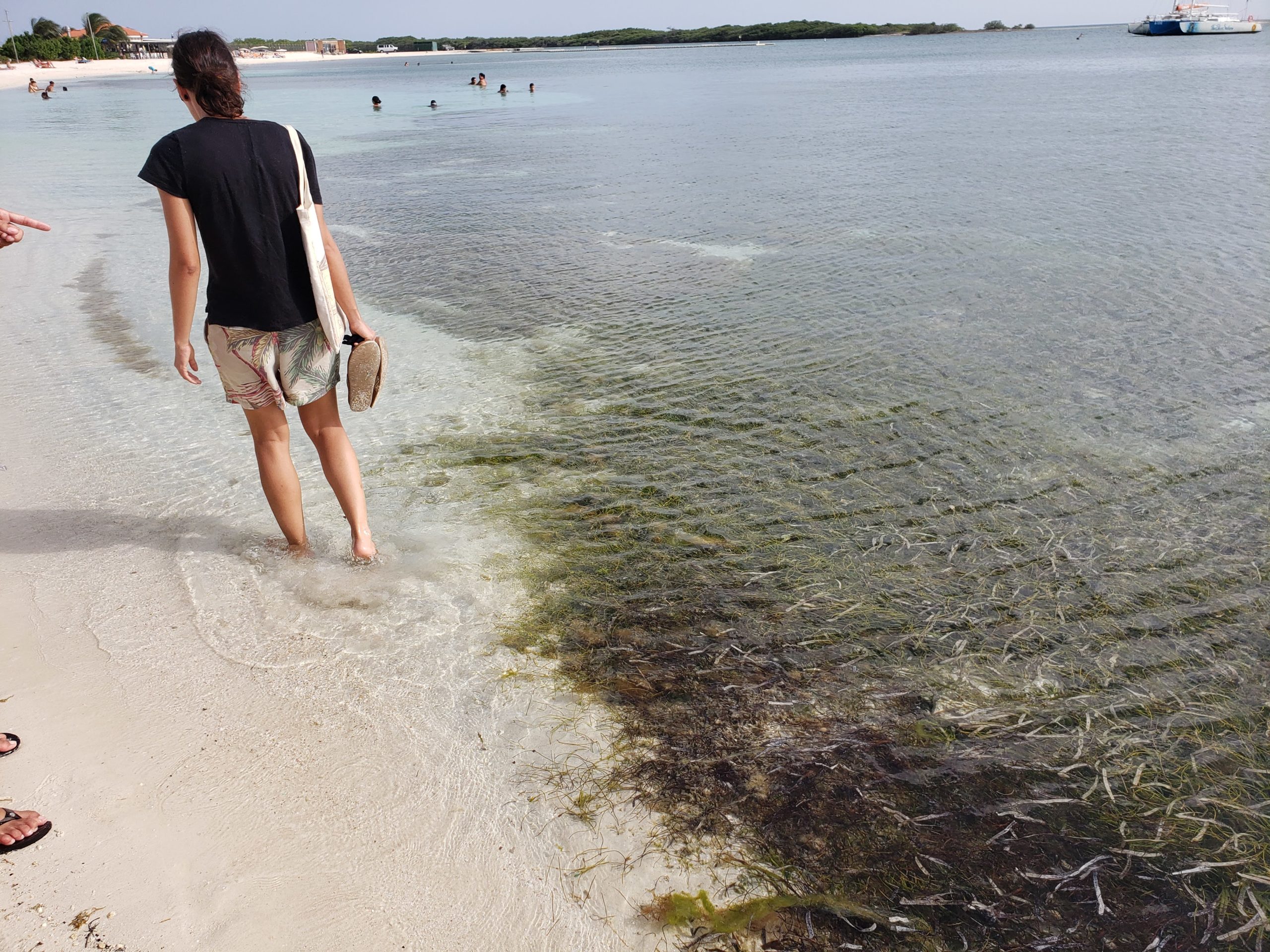This project aims to validate replicable methods to monitor coastal and marine ecosystems, focusing on Surfside Bay in Aruba as a case study. The goal is to identify which methods can contribute to improving access to data collection systems on small islands, with all methods and findings documented and shared openly through this website.
We are a team of experts and students with expertise in science, technology, engineering, mathematics and arts (STEAM) developing and testing several methods for environmental monitoring, focusing on satellite imagery and low-cost electronic sensors. At our pilot site of Surfside, we will be measuring the following parameters:
- Air Quality: Particulate matter, humidity and temperature
- Water Quality: pH, dissolved oxygen, temperature, and electrical conductivity
- Coastal Change: Vegetative cover, coastline, size of reef islands
- Seafloor Mapping: Seafloor cover, including shallow reef and aquatic vegetation
MONITORING
Data collection systems developed to monitor the different environmental aspects will be validated to standard scientific methods. Through the set up of validated data systems, Surfside Science wants to contribute to the conservation of marine ecosystems and monitoring of coastal impacts, including climate change. Our aim is to finalize this project with 5 sensors installed at surfside bay. Our methods involve a combination of sensors, satellite imagery, analysis of underwater pictures through citizen-science and the use of Artificial Intelligence. An online database will be developed that can automatically and continuously collect, store, share, and analyze the data. All data will be open source and accessible for public use.
REPLICABLE SYSTEMS
For all our validated data collecting systems we will create clear and simple technical instructions that allows others to replicate these systems. These technical instructions will be hosted on frequented citizen science and maker platforms (for example: GitHub, Instructables). We hope this will empower SIDS with the tools necessary to also start collecting their own data.
As such, the objective of this project is to contribute to the increased resilience of Aruba’s marine and coastal ecosystem against impacts such as climate change. After this pilot year, funded by RESEMBID, we wish to explore long term funding models to support continued, and expanded monitoring of Aruba’s Marine Ecosystem applying the tools developed in this pilot.
RESEMBID
Metabolic Foundation received funds from the Resilience, Sustainable Energy and Marine Biodiversity Programme RESEMBID. RESEMBID, funded by the European Union and implemented by Expertise France – the development cooperation agency of the Government of France, supports sustainable human development efforts in 12 Caribbean Overseas Countries and Territories (OCTs) – Aruba, Anguilla, Bonaire, British Virgin Islands, the Cayman Islands, Curaçao, Montserrat, Saba, Sint Eustatius, Saint Barthelemy, Sint Maarten and Turks and Caicos.
Surfside science will contribute to SDG 11, 13, 14 and 15


